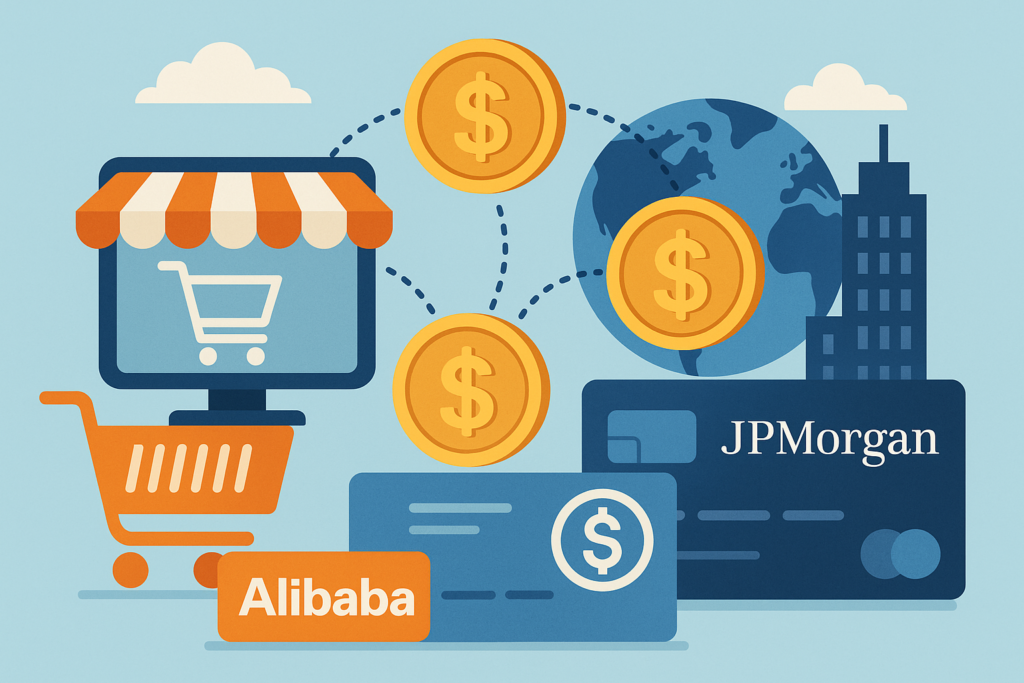
Alibaba, a global leader in e-commerce, is taking transformative steps to reshape B2B transactions with the introduction of a groundbreaking tokenized settlement network. This innovative payment system, developed in collaboration with JPMorgan, aims to enhance the efficiency of international business payments by addressing challenges like delays and high costs. Scheduled for a global rollout in December, the initiative has the potential to redefine global trade.
What is the Tokenized Settlement Network?
At the heart of Alibaba’s approach is the use of stablecoin-like tokens that are backed by real bank deposits in US dollars and euros. These tokens serve as digital representations of money, eliminating the volatility that is often associated with cryptocurrencies. By leveraging this tokenized system, Alibaba aims to reduce cross-border transaction times from the standard 48-72 hours down to near-instant settlements, benefiting both small businesses and large exporters.
The payments network will operate on JPMorgan’s robust Kinexys blockchain platform. As a tried-and-tested technology powering $2 billion in daily tokenized transactions, it ensures the stability and scalability needed to support Alibaba’s bold new initiative. This tokenized settlement network is designed to simplify the complexities of multi-currency and multi-jurisdictional transactions, creating a seamless global payment experience.
How Agentic Pay Elevates B2B Trade
In addition to the payment network, Alibaba is launching Agentic Pay, an artificial intelligence-powered payment rail that revolutionizes B2B negotiations. This tool uses AI to convert conversations between buyers and suppliers into enforceable contracts. By automating lengthy legal and administrative processes, Agentic Pay simplifies deal-making, allowing businesses to focus on their operations rather than time-consuming paperwork.
For businesses seeking to streamline their global trade operations, the combination of the tokenized settlement network and Agentic Pay promises a complete end-to-end solution. From communication to transaction execution, Alibaba is offering a system that enhances both speed and reliability.
Why This Matters for the Future of Trade
Alibaba’s initiative comes at a crucial time as international trade continues to grapple with inefficiencies in traditional financial systems. According to Kuo Zhang, President of Alibaba.com, these disruptions call for modern solutions. JPMorgan’s entry into the partnership further highlights the increasing confidence of traditional finance in tokenized systems. The project signifies a shift toward digital asset technology for scalable, secure, and trusted transactions.
If you’re a professional or business owner eyeing the future of payments, Alibaba’s bold move might pave the way for reliable solutions customized to global trade. Companies interested in adopting similar state-of-the-art solutions can look into tools like the Intuit QuickBooks, which offers financial management features tailored to small and medium-sized businesses dealing with complex payment processes globally.
Looking Ahead
When fully operational, Alibaba anticipates handling billions in annual settlement volume through its tokenized payment network. By solving common inefficiencies like payment delays and currency complexities, this system represents a pivotal step forward in global B2B commerce. Unlike speculative crypto projects, Alibaba’s use of real-world assets tied to digital tokens makes it a trustworthy solution for businesses worldwide.
This collaboration between Alibaba and JPMorgan highlights how technology and strong partnerships can offer innovative financial solutions to meet the demands of the digital economy. As the network prepares for its December launch, it will be exciting to see how the global trade ecosystem evolves in response to these cutting-edge advancements.






